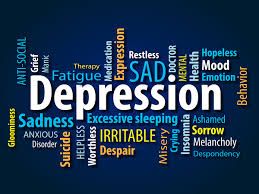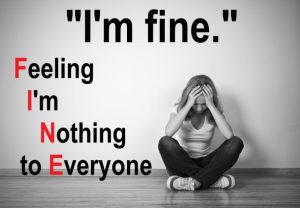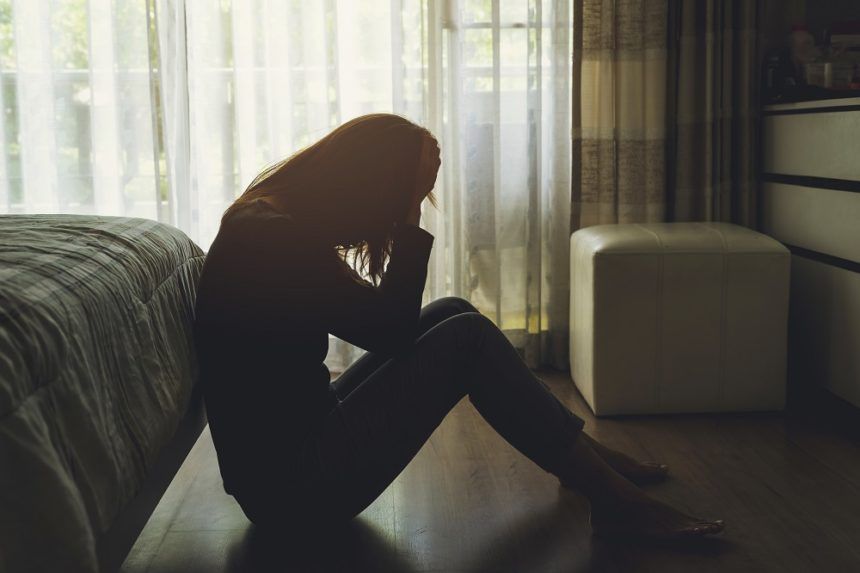“Depression is common mental illness, characterized by persistent sadness and a loss of interest in activities which you normally enjoy, accompanied by an inability to carry out daily activities for at least two weeks” – World Health Organization (WHO)
Types of Depression
- Major Depressive Disorder: If someone feels depressed most of the time for most days of the week.
- Persistent Depressive Disorder: If depression lasts for two years then it is called persistent depressive disorder. This term describes the two medical condition which is Dysthymia (low-grade persistent depression) and chronic major depression.
- Bipolar Disorder: It is also called as “Manic Depression” which is characterized by mood episodes that range from extremely high energy to low depressive periods.
- Seasonal Affective Disorder (SAD): it is a period of major depression which often happens in the winter season.
- Psychotic Depression: If someone shows the symptoms of major depression along with psychotic symptoms like hallucination (seeing or hearing things that aren’t there), delusion (False belief), paranoia (wrongly believing that others are trying to harm you)
- Postpartum/Peripartum Depression: Sometime women may have major depression in the weeks and months after childbirth that is called postpartum depression.
- Premenstrual Dysphoric Disorder (PMDD): Women can have PMDD at the start of their period or menstrual cycle.
- Situational Depression: this not a technical term but sometimes if some feel depressed while managing his/her stressful life events like death, divorce, and so on.
- Atypical Depression: This differs from typical depression. If someone has atypical depression then a positive event can improve his/her mood temporarily.
Symptoms of Depression
The symptoms of depression may vary from mild to severe which includes:
- Loss of interest and pleasure in activities that once you used to enjoy
- One can feel guilt, worthlessness, helplessness, frustrated
- One can be withdrawal from social activities
- One can become pessimist or hopeless and have a lack of confidence
- Irritability and restlessness
- Insomnia, early morning wakefulness or sleeping too much
- Overeating or loss of appetite
- Aches, pains, or cramps which won’t go away
- Problems in digestion which won’t get better even with the medication
- One can feel difficulty in concentrating and making decisions
- Suicidal thoughts and attempts

Symptoms of Depression(OCD-UK)
What Causes The Depression
There are numbers of causes of depression which can be included as follows:
- Abuse (Physical, Emotional, Sexual, Verbal)
- Personal conflict or dispute with family or friends
- Heredity (if someone has a history of mental illness/depression in the family)
- Substance abuse
- Death or loss of loved ones
- Serious medical illness (if someone is dealing with the treatment of any chronic disease)
- Stressful life events
- Poor nutrition
Diagnosis of Depression
There are not any tests to confirm that someone is suffering from depression so the doctor can diagnose the depression with a thorough history and physical examination
The doctor can ask the following questions
- When your symptoms started
- How long they have lasted
- How severe they are
- Do you have a history of depression or any mental illness in your family
- Do you have a history of drug or alcohol addiction
How Depression Is Treated
If the doctor rules the causes for your physical symptoms, he/she may start treatment or may refer to the mental health specialist who will figure out the best treatment approach. The treatment may include antidepressants medicine and psychotherapy or both.
Warning Signs of Suicide
- Talking or thinking about death every time
- Clinical depression (insomnia, loss of appetite, oversleeping) which gets worse
- Doing risky works that can lead to death
- Saying the words like “ it would be better if I weren’t here”
- Talking about suicide




